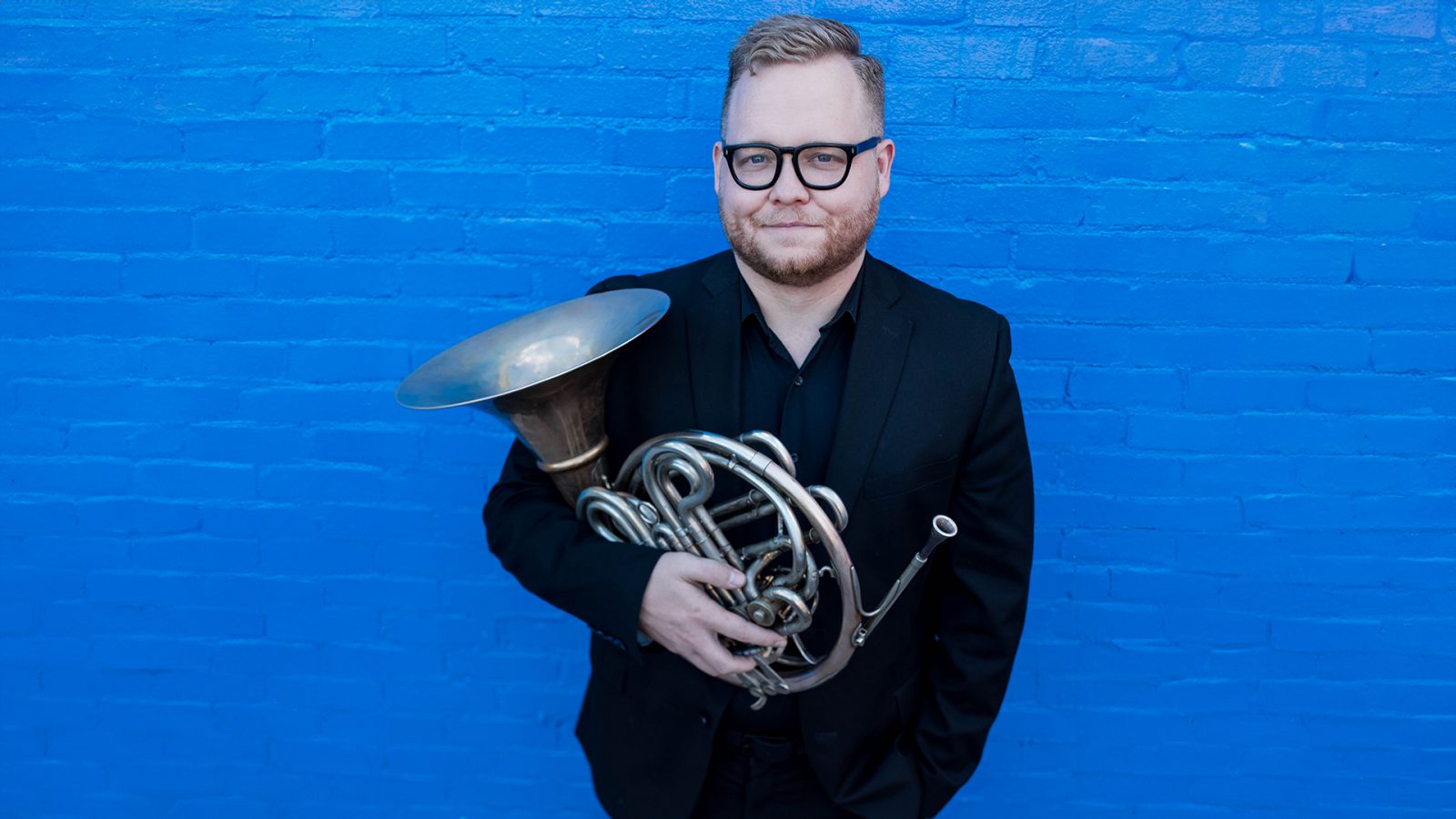Music

What is music?
The music program at Virginia Tech offers a dynamic and well-rounded education in the study and practice of music, blending performance, theory, history, and music technology. You can choose from a variety of ensembles and applied study options while developing a strong foundation in musicianship and critical listening. The curriculum encourages both academic inquiry and creative expression, with opportunities to explore composition, conducting, music education, and more. Through one-on-one instruction, ensemble collaboration, and live performance experiences, you’ll gain the skills, discipline, and confidence needed for a successful career in music or continued study at the graduate level.
Why study music at Virginia Tech?
- Benefit from one-on-one instruction in a tight-knit program that’s part of a large university, giving you personalized attention as well as the chance to perform at high-profile events such as Virginia Tech Philharmonic Orchestra, Wind Ensemble, and Choirs concerts.
- Learn directly from experienced faculty in every course; no classes are taught by teaching assistants.
- Participate in masterclasses led by world-class musicians and guest artists brought to campus by the music program.
- Audition for ensembles that range from chamber groups and jazz combos to symphonic bands and choirs. You can also join the Marching Virginians, which includes Hokies across the university from all majors and is an essential part of football games and campus spirit.
- Take the stage in professional performance venues like the Anne and Ellen Fife Theatre, a 1,274-seat hall in the Center for the Arts at Virginia Tech.
- Compose original music and share it with the world. Carter Roberts had his work featured in Virginia Tech’s sesquicentennial celebration and at the National D-Day Memorial.
- Work in the Digital Audio Recording and Production Studio, a 4,500-square-foot, multiroom facility with nine acoustically isolated rooms and a variety of digital audio and video applications such as Pro Tools, Logic Pro, Sonic Studio Soundblade, Sonic Studio HD, Sound Particles, Final Cut Pro, and Davinci Resolve
- Study the music and culture of Spain through The Iberian Experience: Music in Spain, a study abroad course that takes you from Madrid to Toledo and Alicante, exploring the region’s music and culture.
- Gain hands-on teaching experience through the Virginia Tech String Project, where you’ll work with local third and fourth graders and mentor more advanced young musicians in orchestral settings.
- Apply to take part in the Vienna Contemporary Composers Festival. Jacob Alan Smith traveled to Austria for the event and attended private composition lessons with Viennese and international composers, participated in master classes on contemporary music and advanced theory topics, and had an original composition performed by the world-class PHACE Ensemble.

What courses will I take?
To learn more about the courses you’ll take as a music major, review the Program Curriculum and course descriptions in the university catalog. You can personalize your degree through the program's different options: composition, creative technologies, education (instrumental and chorale), performance (instrumental and vocal), and technology.
Meet an alum

Dakota Corbliss '13
“Virginia Tech was the first place I felt I could call home. I grew up in a military family, so the word ‘hometown’ was always a bit unfamiliar for me. While Virginia Beach has grown into that hometown role, my time in Blacksburg gave me an idea of what it felt like to be settled somewhere. My time in the music department at Virginia Tech showed me what it really felt like to create an environment for students that was welcoming and encouraging, while still striving to exceed expectations.”
What can I do with a degree in music?
- Audio technician
- Choir director
- Instrumental instructor
- Music director
- Music teacher
- Performer
- Piano accompanist
- Private music instructor
- Recording assistant
- Sound designer
- Studio assistant
What graduate programs could I pursue?
- Choral conducting
- Composition
- Ethnomusicology
- Instrumental conducting
- Jazz studies
- Music education
- Music performance
- Music theory
- Musicology
- Sound design






